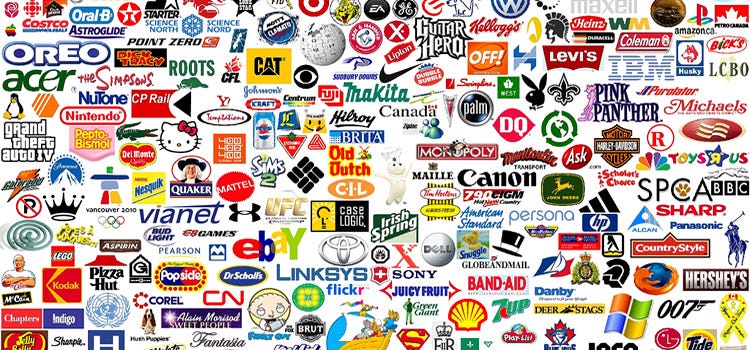Is Advertising a Cultural Industry?
Depends on who you ask.
Some believe advertising isn't a cultural industry, but actually exists as a way to prey on culture itself.
"When it comes to society however, and the big picture effects of advertising in general, it’s not pretty. The report’s conclusion is that advertising promotes values that are directly opposed to human wellbeing, environmental sustainability and a fair society. It ought to be considered a detrimental influence, and regulated accordingly. While advertising campaigns reflect society to a certain degree, they also have the effect of ‘normalising’ values or behaviours and tend to promote ‘extrinsic’ values rather than ‘intrinsic’ values. Extrinsic values rely on external factors for validation – admiration or desire, for example. Intrinsic values are rewarding in themselves without need for outside approval. Think about how you feel when you finish something you worked hard on. That's an intrinsic value.
Advertising might not even promote choice after all. By manipulating its audience, it may in fact stifle choice. Much advertising is subliminal, creating positive associations without prompting conscious thought. If we sat down and decided to think about why we prefer Coke or Pepsi, odds are that it wouldn't take long to decide that conclude we don't care because it doesn’t matter. An active choice, in this instance, is bad for the brand."
Now, that above passage— while intended to be a broader take on advertising and its role in how we live as a culture—also makes me curious:
Is any industry that uses culture to influence us—be it positive or negative— a cultural industry? I would say yes.
From where I sit, advertising is a core cultural industry that is the clearest intersection of economy and culture that we have. Yes, advertising is the creative product of advertising agencies, but it also is the most obvious example we have in society of marketing and communications: a broader set of cultural practices that aim to tie how we live with what we buy. Advertising leverages common and shared meanings created by people; those common and shared meanings are what we mean when we talk about “culture”. Advertising follows the same path as film, sports or music: it leverages culture to get consumers to associate themselves with particular products and services.
We should aim to discuss all cultural industries under the same context we discuss the creative aspects of advertising. No matter what discipline they follow, creatives have to learn to produce with consistency and frequency. When those who work as creatives ignore the economics of their industry by pretending their abilities aren't within their control, or that the process of creation is all magic or bottled lighting, we enable our own ignorance (not to mention we give up the change to break the cycle that keeps us all BROKE). The transparency found in advertising should be standard across all cultural industries. If you told a musician who loved the scent of their own farts that you'd like them to create a 3-minute tune about dish soap or an alcoholic seltzer, they might put a cigarette out on you. Counter that with the hurried and worried art director, who not only can create society-defining work at-will, but can do it in 4 hours because they have to present the idea at 8 am.
Advertising brands and logos pervade everyday life and social communication, as well as the fabric of material culture surrounding us in our homes and the streets of our cities. That is, advertising gives society its very look and feel. It both takes and gives from culture, amplifying trends in subcultures to the mainstream. The fact that organizations build full content strategies around critiquing Super Bowl ads every year, elevates the humble “advertisement” from sales tool to artistic thesis. We are who we tell people are and we tell people who we are by what we buy.
TL;DR: advertising is a cultural industry. Glad we got THAT settled.
ANNOUNCEMENTS:
I HAVE A WEBSITE NOW: I’ve had a lot of people reach out over the last few months about working with me or wondering about what it is that I actually do for a living. Well, now you can learn about me, my projects and how I can help you stand out in your cultural industry via my all-new website (and the eventual new home of this newsletter) ErnestWilkins.com. My site was built by Office Hours subscriber Tim T. and the good folks at Covert Nine. Hit them up if you need a new website.
CHICAGO: Through my volunteer consulting work with the Chicago Department of Cultural Affairs and Special Events, I’m pleased to announce that applications for the 2021 CityArts grants are now LIVE. Putting this next part in caps because I need y'all to pay attention: THE CITY IS GIVING OUT MONEY TO HELP OUT ARTISTS & CULTURAL ORGS. APPLY NOW. YES, YOU. NO EXCUSES!!!!
ICYMI: If you missed the webinar that Dan Runcie of Trapital and I recently did about the best hip-hop album rollouts of all-time, you can hear it on the Trapital podcast or watch it in full below.
TUNES:
In anticipation of Drake’s forthcoming new album, whenever it drops, I made a playlist of the best Drake songs where he’s fully talking his shit (because those are the best Drake songs)🦉
SUPPORT THIS THING:
Did you know, that for less than the cost of a bucket of beers, you can support a Black-owned media startup? Become a paid supporter of Office Hours with Ernest Wilkins on an ongoing basis today. $7 a month or $75 a year.
Can’t do a paid subscription right now? Consider showing your support for my work with a one-time donation!
Office Hours with Ernest Wilkins is written and curated by Ernest Wilkins in Chicago, Illinois. He’s seriously cold right now.



